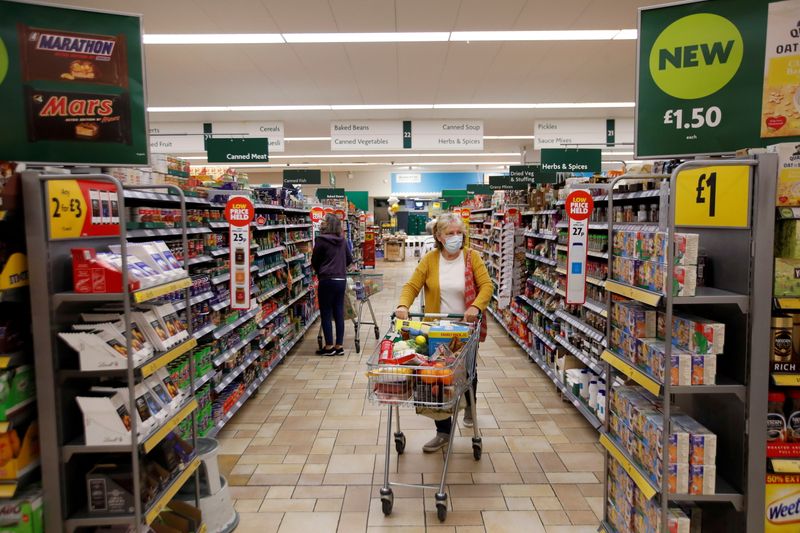LONDON (Reuters) - Prices charged by British retailers fell slightly faster in June than in May due to a fierce battle between supermarkets, but growing costs linked to COVID-19 and Brexit might add to the rise in broader inflation soon, an industry group said.
The British Retail Consortium's shop price index for June showed prices were 0.7% lower than a year before compared with a 0.6% fall in the year to May, which was the smallest drop since February 2020.
Shop prices as measured by the BRC typically show year-on-year price falls unlike the wider measure of consumer price inflation targeted by the Bank of England which includes services and a bigger range of goods.
The BoE said last week that CPI is likely to peak at more than 3%, above its 2% target, but the increase would be due largely to a global rise in energy prices and one-off supply chain problems caused by the coronavirus pandemic.
The central bank stuck to its view that the rise in overall inflation was likely to be temporary.
"The fact that shop prices remain in negative territory despite the recent rise in CPI is indicative of the competitive retail landscape in the UK," said Mike Watkins, head of retailer and business insight at NielsenIQ which co-produces the index.
BRC Chief Executive Helen Dickinson said costs for retailers were rising due to higher food and fuel prices, Brexit-related red tape and supply chain disruption caused by the pandemic.

"The increasing cost burden on retailers may be passed onto the consumer, threatening price rises as the pressure mounts in the months ahead, especially with additional Brexit checks this autumn," she said.
The BRC collected price data between June 1 and June 7.